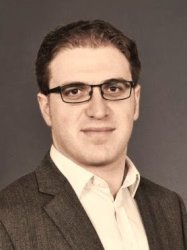BibTex format
@article{Temesgene:2021:10.1109/tsusc.2020.3025139,
author = {Temesgene, DA and Miozzo, M and Gunduz, D and Dini, P},
doi = {10.1109/tsusc.2020.3025139},
journal = {IEEE Transactions on Sustainable Computing},
pages = {626--640},
title = {Distributed deep reinforcement learning for functional split control in energy harvesting virtualized small cells},
url = {http://dx.doi.org/10.1109/tsusc.2020.3025139},
volume = {6},
year = {2021}
}

